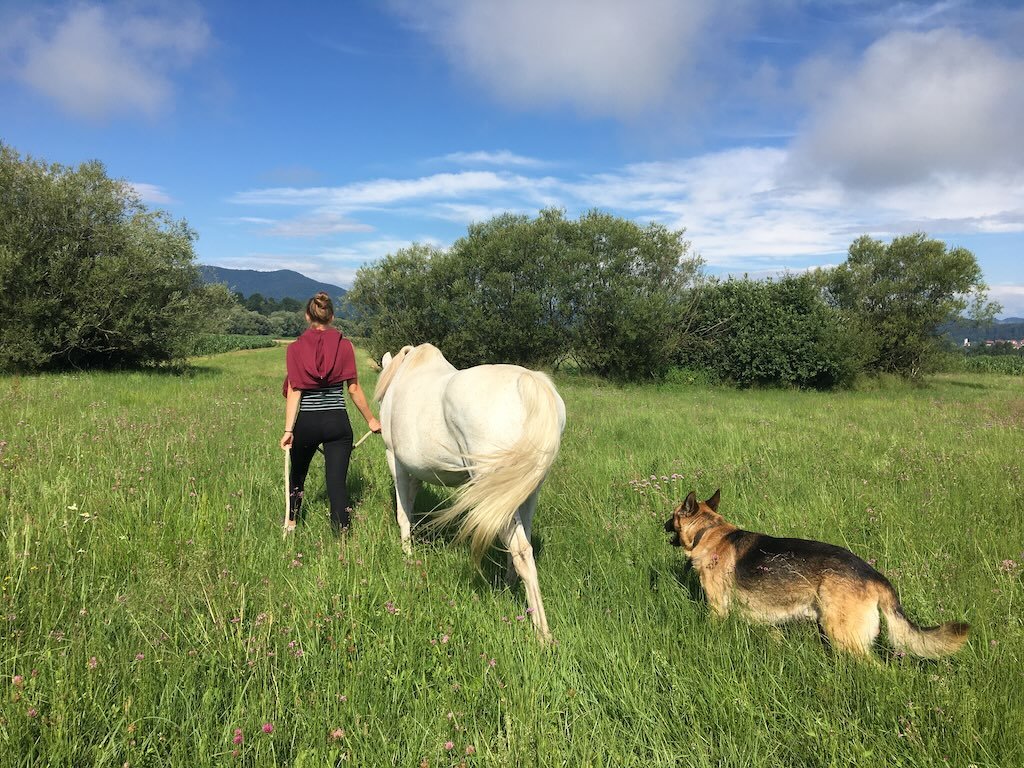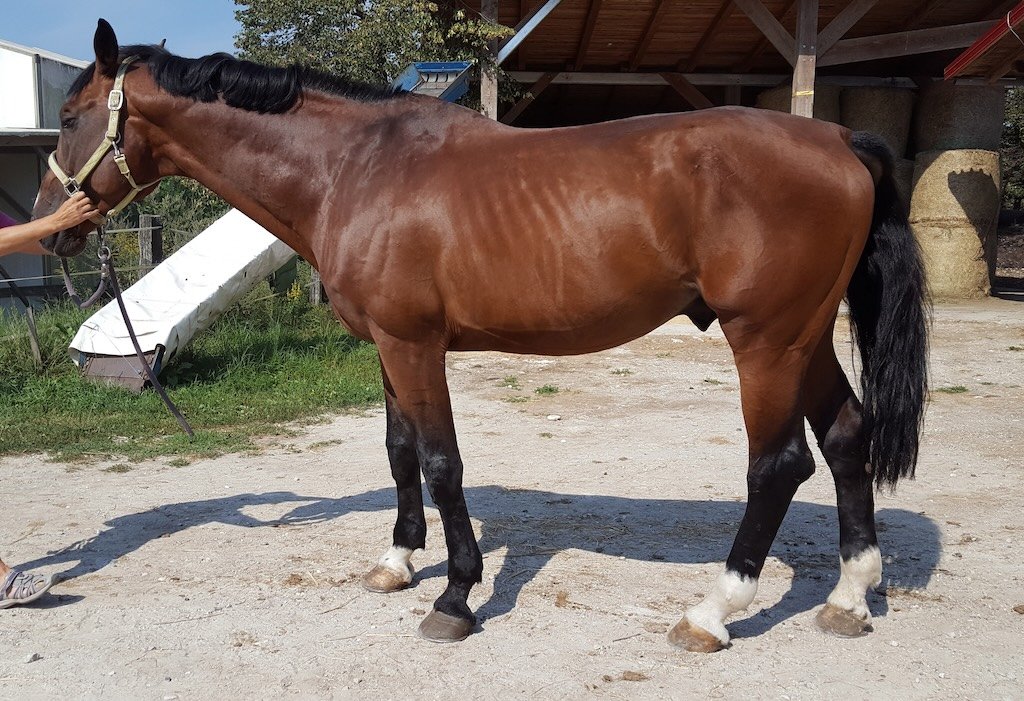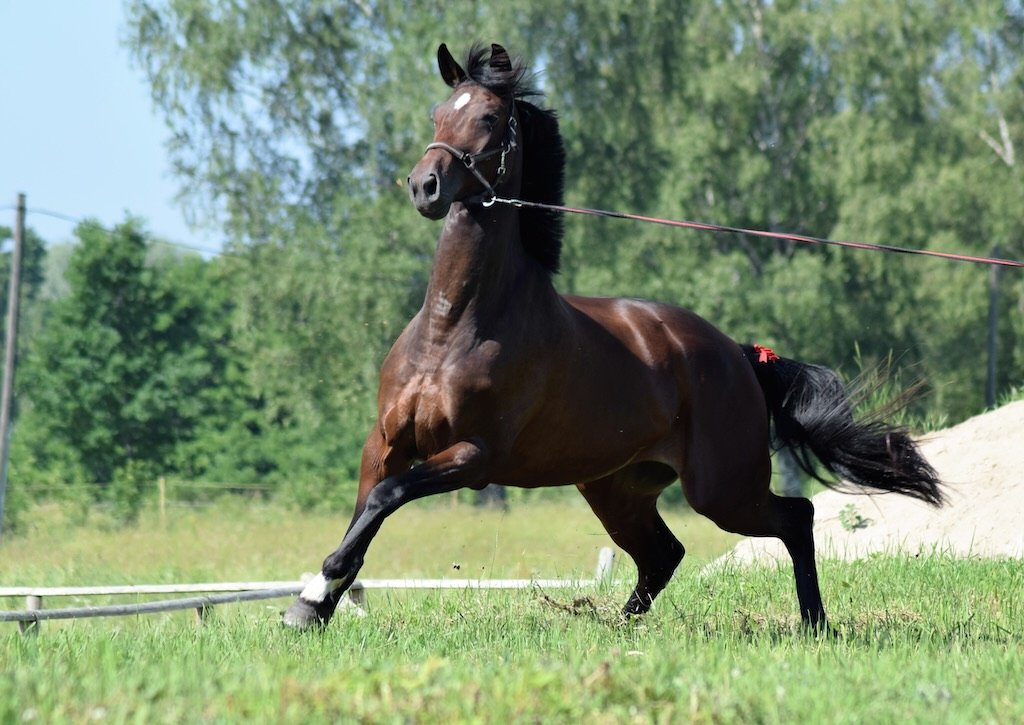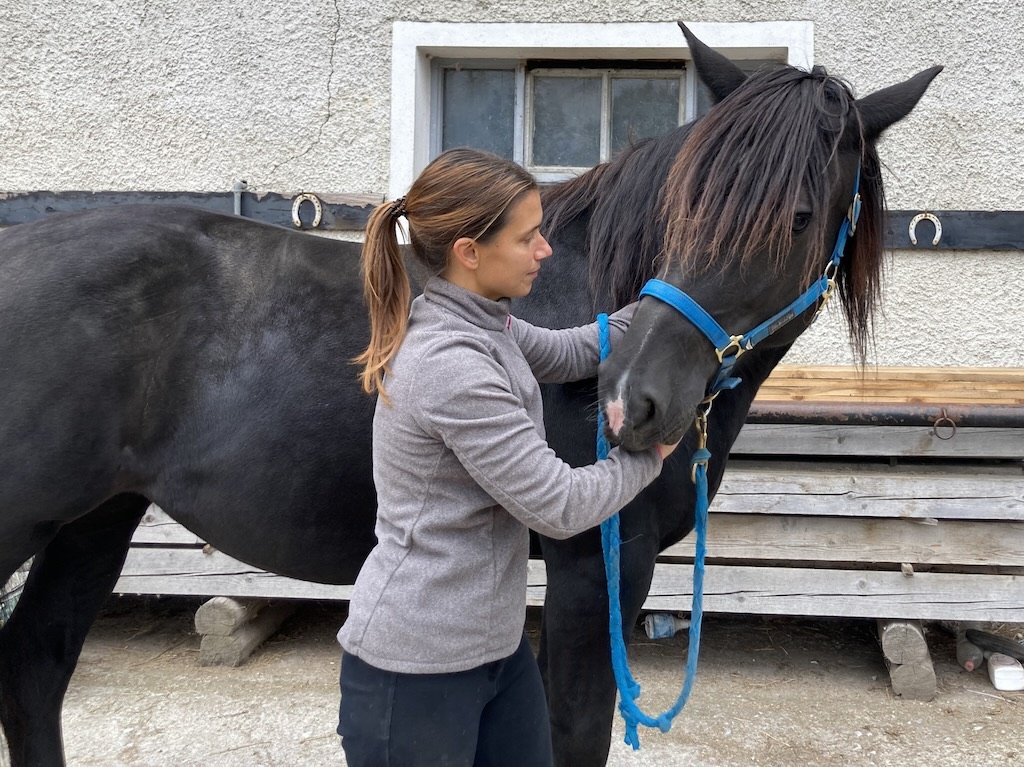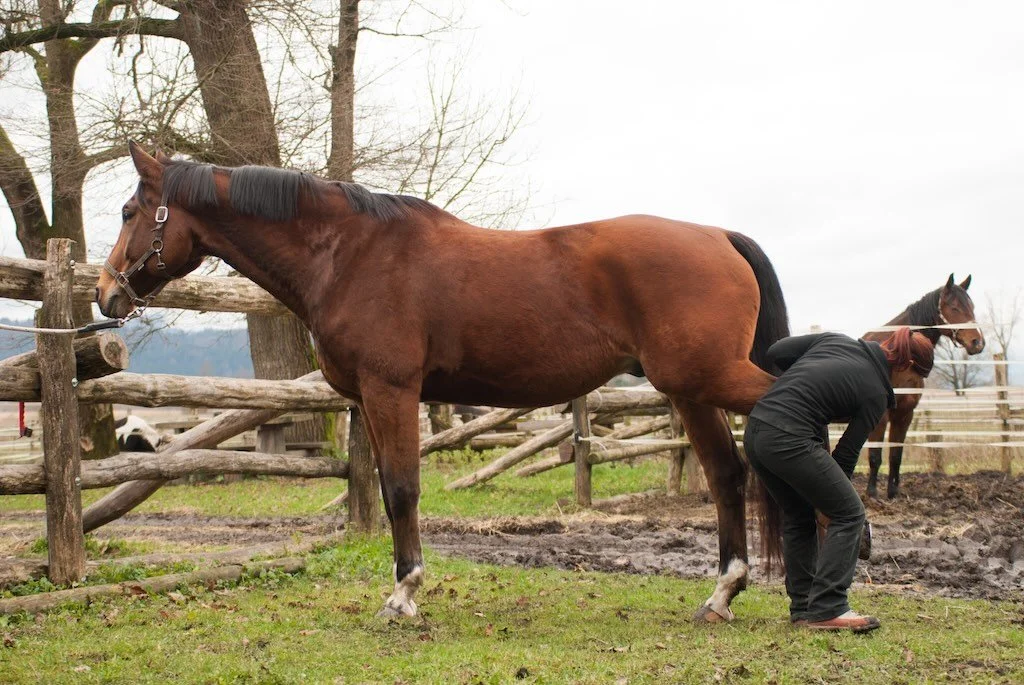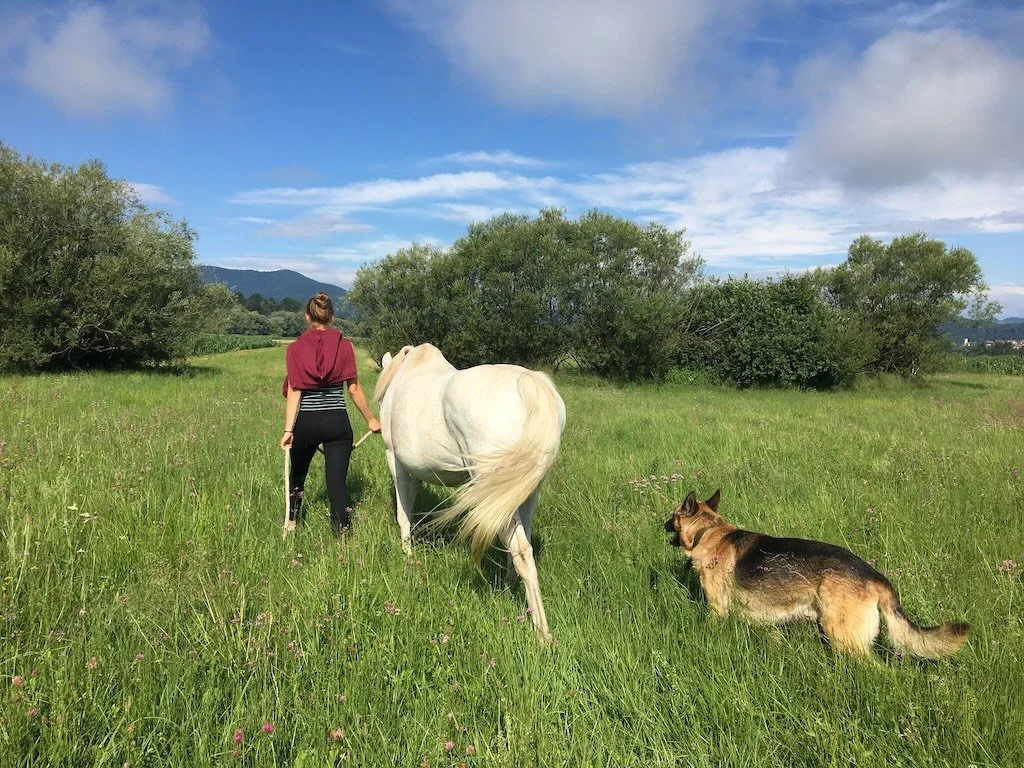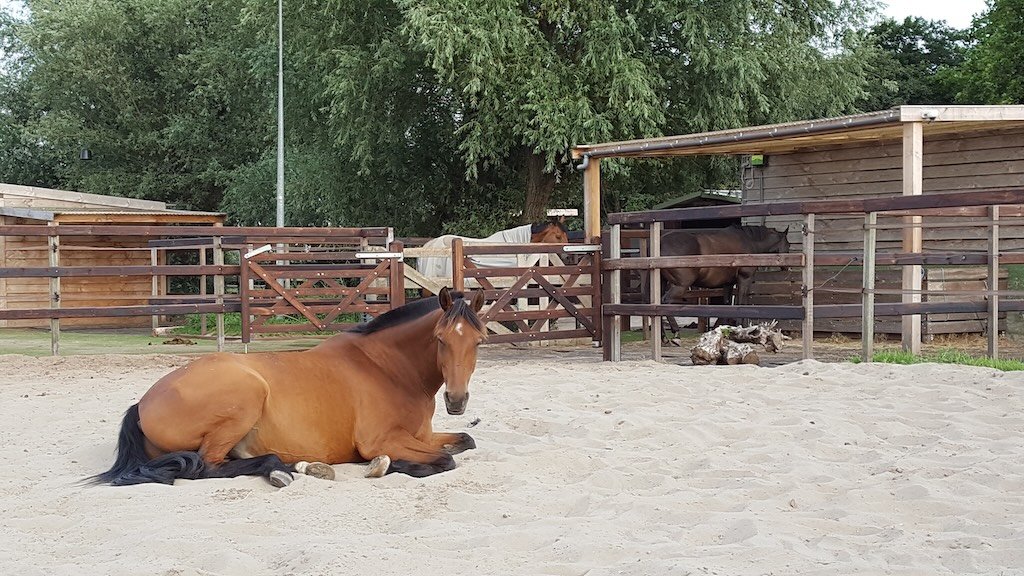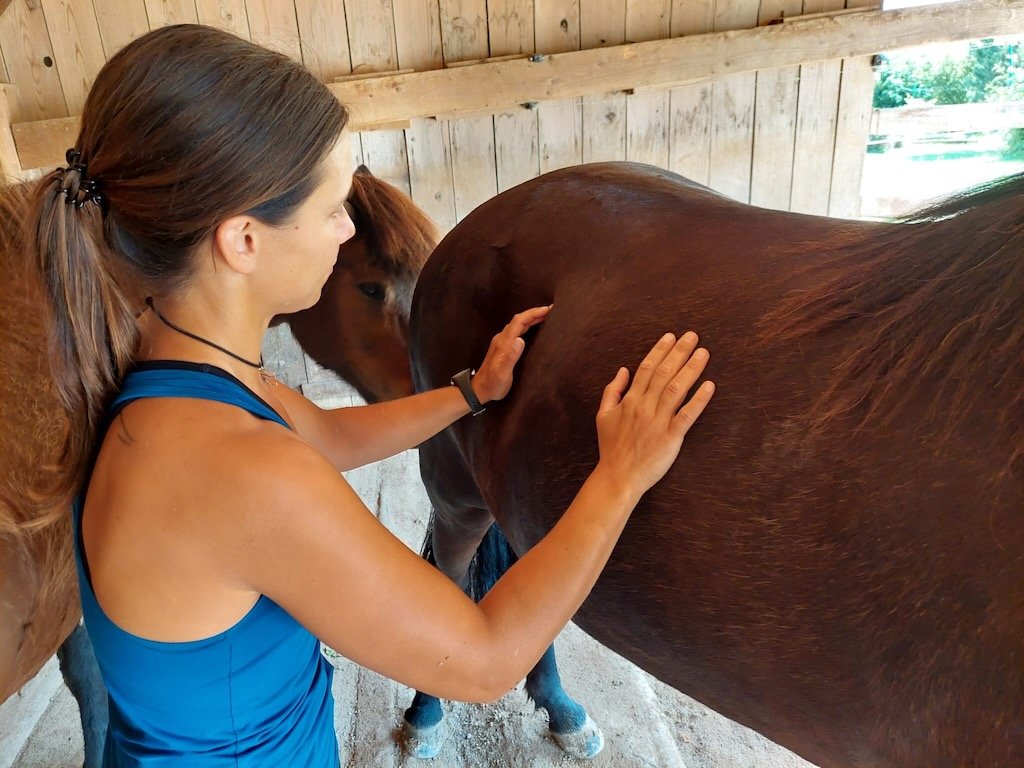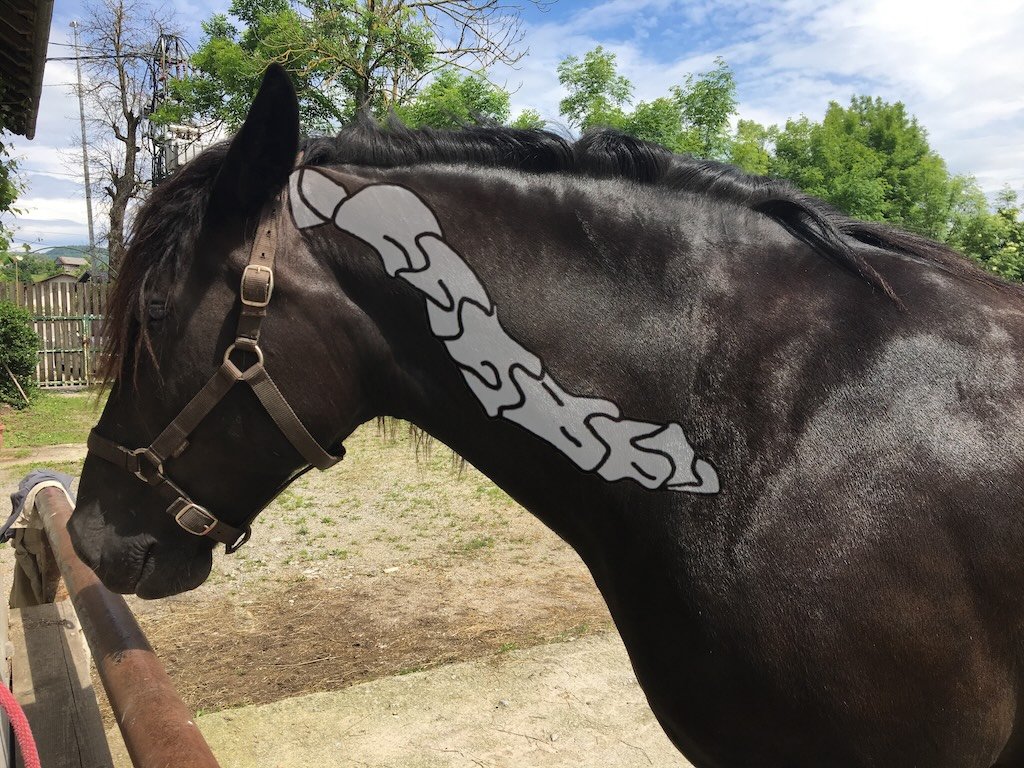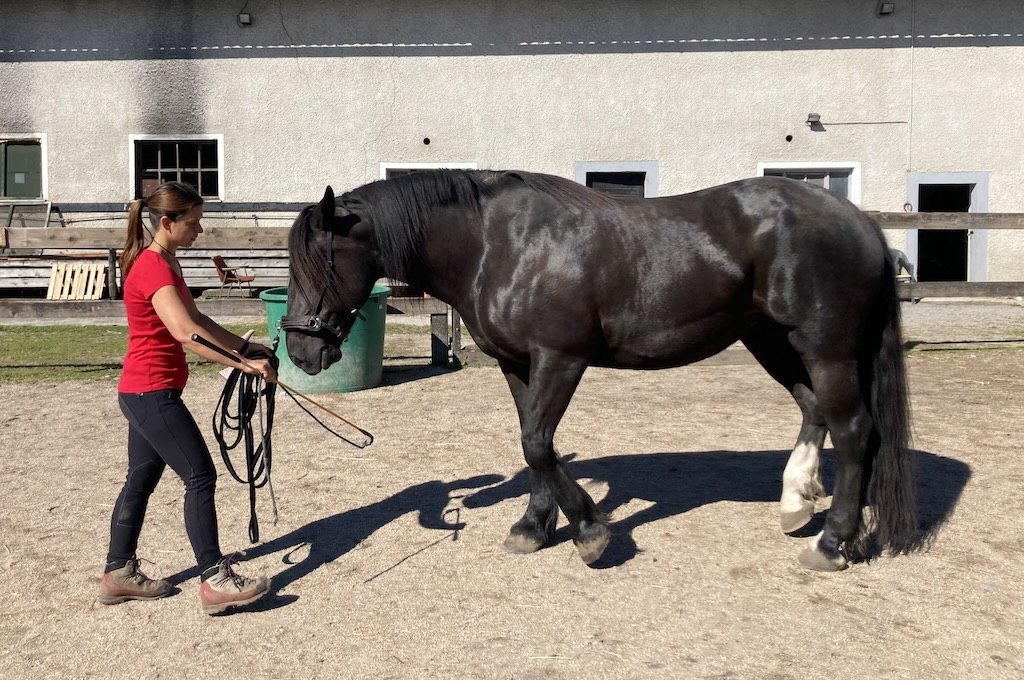Good posture on the trail
Groundwork should not be reserved for the arena only. You can do some wonderful groundwork and set up a good foundation for healthy posture on the trail too.
Different types of muscle dysfunction
Did you know that muscle dysfunction comes in two specific flavours? This is why it matters to address both of them.
A closer look at postural changes
Training your eye to spot good posture can be tricky. Here is a closer look at some things to be watching out for.
Moving on circles is hard work
Because lunging is such a common practice, we often forget how difficult moving on circles is for horses. We need to be aware of this is we want to make sure to teach our horses how to handle the challenge of moving on a bend.
Keeping hypermobile horses healthy
Hypermobility is a very widespread problem in the modern horse world. It comes with a host of health problems, which is why we need to do everything we can in terms of injury prevention.
Neuropathic pain – what is it and why it matters
Not all pain is created equal. Neuropathic pain can have dire consequences on the horse’s well-being and is potentially the main culprit of explosive behaviour.
Want to mobilize the neck? Here's how!
The neck can be a source of pain and stiffness which is why many riders try o use exercises to make it more supple. Instead of bending the neck sideways with the use of reins or carrots, here is a better way to do it.
Why does my horse have a hard time picking up hind legs?
A horse that has a hard time picking up or holding up his legs can often be labelled as being naughty, but there's actually a strong chance that he is acting this way due to physical discomfort.
5 benefits of working in walk
When working our horses to develop stamina or strength, we mostly focus on work in trot and canter, but we shouldn't forget that the walk is actually a great way to develop both muscles and endurance. And while we might see it only as a warm-up and cool-down gait, we shouldn't overlook its potential benefits. Here are five ways in which working in walk can benefit your horse.
Deciding where to board you horse?
Choosing a place where our horse will live can be a daunting task. There are so many factors to consider, it can sometimes be hard to make a good decision. There's the type of boarding to consider (open stable/track system/traditional stable), the distance from where you live, the people, the infrastructure... Here are some things that are worth considering when deciding where to board your horse.
Taking care of the ribcage
Try these two bodywork techniques to restore range of motion and enable to ribcage to function better.
Thoracic sling – a lesson in anatomy
Understanding the anatomy of the thoracic sling is essential in our ability to make good decisions when it comes to training our horses.
Riding bareback – yes or no?
A question that often comes up is whether or not it's ok to ride the horse without a saddle. As always, the answer will be – it depends. Riding bareback can be a good opportunity for the rider to be better balanced and to learn how to better use his core muscles, but it can have negative effects on the horse.
Transitioning to outside living
Track systems and outside living are great for horses, as they have massive health benefits. When transitioning to a more natural way of life, make sure to give your horse plenty of time to adjust.
5 groundwork mistakes to avoid
Groundwork is an excellent tool if used properly. Here are 5 common mistakes that compromise the beneficial effects of this kind of work.
Every pull-back incident is a big deal
A horse pulling back while being tied is a scary sight to witness and it should always be taken seriously.
It's not what you do, it's how you do it
When it comes to which exercises are appropriate for a specific goal, it all depends on the manner in which they are executed.
How often should you get your saddle checked?
Saddle fit is crucial to soundness and performance, so make sure to get your saddle checked regularly by a qualified professional.
Stress and the thoracic sling
Stress is bad for so many things, including locomotive problems. A stressed horse will be more likely to overextend the base of his neck, causing many issues.
Tightness – what is the body protecting?
Tight muscles are most often a symptom, not a standalone issue. Whenever we are dealing with recurring tightness, we need to ask ourselves - what is the body trying to protect?
